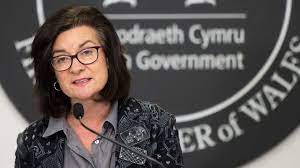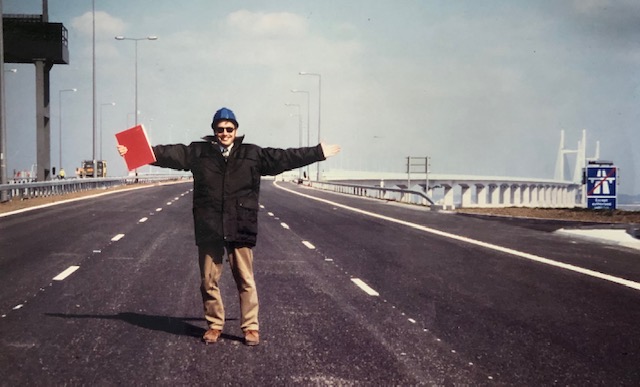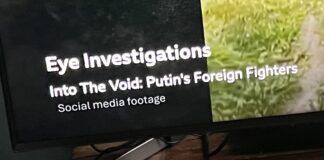- Eyes right… - 26th February 2026
- Opposites attract - 26th February 2026
- Upset coffee - 25th February 2026

During 23 years with the BBC, and 38 years in journalism (when he was trained to use clear and simple language, avoiding jargon), political stories always loomed large for our Editor Phil Parry, but double-standards often seemed to exist in them!
This was underlined by the fact that last week a senior Welsh politician was banned from driving for speeding, when she had herself endorsed a lower speed limit for other drivers.
In the past he has described how he was helped to break into the South Wales Echo office car when he was a cub reporter, recalled his early career as a journalist, the importance of experience in the job, and making clear that the ‘calls’ to emergency services as well as court cases are central to any media operation.

He has also explored how poorly paid most journalism is when trainee reporters had to live in squalid flats, the vital role of expenses, and about one of his most important stories on the now-scrapped 53 year-old BBC Cymru Wales (BBC CW) TV Current Affairs series, Week In Week Out (WIWO), which won an award even after it was axed, long after his career really took off.
Phil has explained too how crucial it is actually to speak to people, the virtue of speed as well as accuracy, why knowledge of ‘history’ is vital, how certain material was removed from TV Current Affairs programmes when secret cameras had to be used, and some of those he has interviewed.

Earlier he disclosed why investigative journalism is needed now more than ever although others have different opinions, and how information from trusted sources is crucial at this time of crisis.
‘Hypocrisy’ is a strong word, but it is a useful one when you are reporting political stories, and this basic fact was highlighted for me after recent events emerged.
Last week, the Welsh Health Minister Eluned Morgan, MS, was disqualified from driving for six months because she was speeding, yet less than three years ago she had declared that road safety was an important issue, and there should be more 20 mph zones.

To many voters this could seem rather hypocritical, and showing these kind of double-standards come at a difficult time for Labour (she is a Labour politician) when they are attacking the Conservative UK Prime Minister, Boris Johnson, for breaking rules his own government had drawn up, in attending parties during lockdown.
Mr Johnson will be grateful that Ukraine has wiped ‘partygate’ off the front pages, but in a testy exchange at Prime Minister’s Question on January 19, his opposite number, Labour leader Sir Keir Starmer, put it to him through the speaker of the House of Commons: “Not only did he write the rules but some of his staff say they did warn him about attending the party!”

As health minister herself during the pandemic, Ms Morgan was in a sense part of this attack on the Tories, because she regularly hosted Welsh government Covid briefings, showing how Wales could do things differently, and she did rounds of media interviews.
However voters may now ask themselves: “Why should we believe what these people are saying, when they don’t abide by the law themselves?!”.


Let’s look in a bit more detail at the example set by the Welsh minister Ms Morgan.
She received the driving ban last week for accumulating too many points on her licence after speeding on a 30 mph road in Wrexham.
Ms Morgan, Labour Member of the Welsh Parliament/Senedd Cymru (WP/SC) for Mid and West Wales, was disqualified at Mold Magistrates’ Court on Wednesday.

In a statement, she said she had pleaded guilty to the speeding charge and accepted the court’s punishment.
“This is not something I am proud of and I apologise unreservedly”, she announced.
Despite this apology, her action in breaking the law sits uncomfortably with comments she made in May 2019.
THEN she welcomed remarks from the First Minister of Wales (FMW) Mark Drakeford, that speed limits of 20mph could be introduced in all residential areas in Wales.

Draping herself in rather different metaphorical clothes to the ones she may have worn when she was behind the wheel of a speeding car, she had proclaimed: “Road safety is an issue that regularly features in my inbox.
“Research shows that speed is a contributory factor in many road accidents, contributing to almost a quarter of fatal accidents in 2016.
“Twenty miles an hour zones will make a real difference in our communities, reducing air pollution and making roads in our communities safer for everyone.”

But the ‘everyone’ she refers to, may NOT include those voters who could now smell a rat, when the person making these kind of statements has just been banned from driving herself.
Road safety might well be an ‘issue that regularly features’ in the inbox of Ms Morgan, yet perhaps it doesn’t feature as strongly at the forefront of her mind, after she was caught speeding…
The memories of Phil’s astonishing, decades long award-winning career in journalism (including exposing the hypocrisy of leading politicians) as he was gripped by the rare neurological disease Hereditary Spastic Paraplegia (HSP), have been released in a major book ‘A GOOD STORY’. Order it now!

Publication of another book, however, was refused, because it was to have included names









